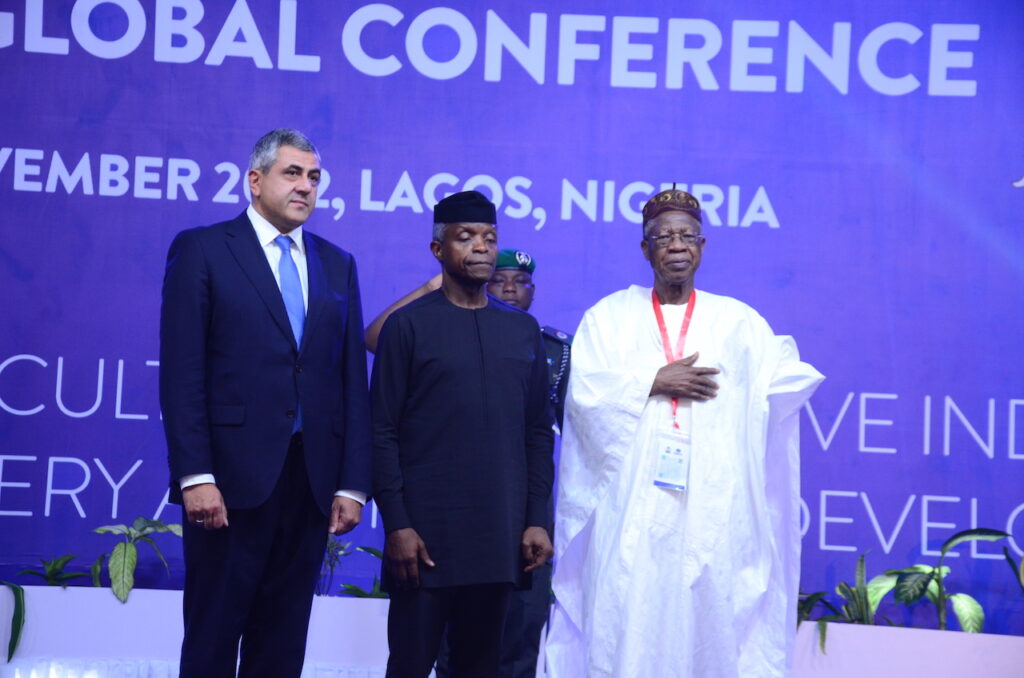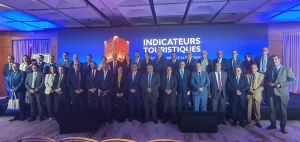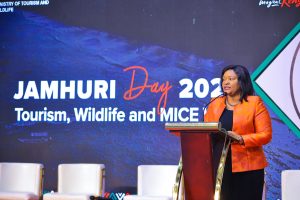The creative industry and culture have been identified as key propellers of tourism underpinned by innovations that are accelerating the growth and the relevance of tourism to economies around the world.
This was the general sentiment gleaned from the second and official opening day of the ongoing maiden UNWTO Global Conference on ‘Linking Tourism, Culture and the Creative Industries: Pathways to Recovery and Inclusive Development’ in Lagos, Nigeria.
Vice President of Nigeria, Prof. Yemi Osinbajo in his speech prior to officially declaring the conference open, paid homage to the country’s burgeoning creative industry which he said was gaining global acclaim, thanks to the musical prowess of artistes such as Kizz Daniel, Burna Boy, Asake among others.
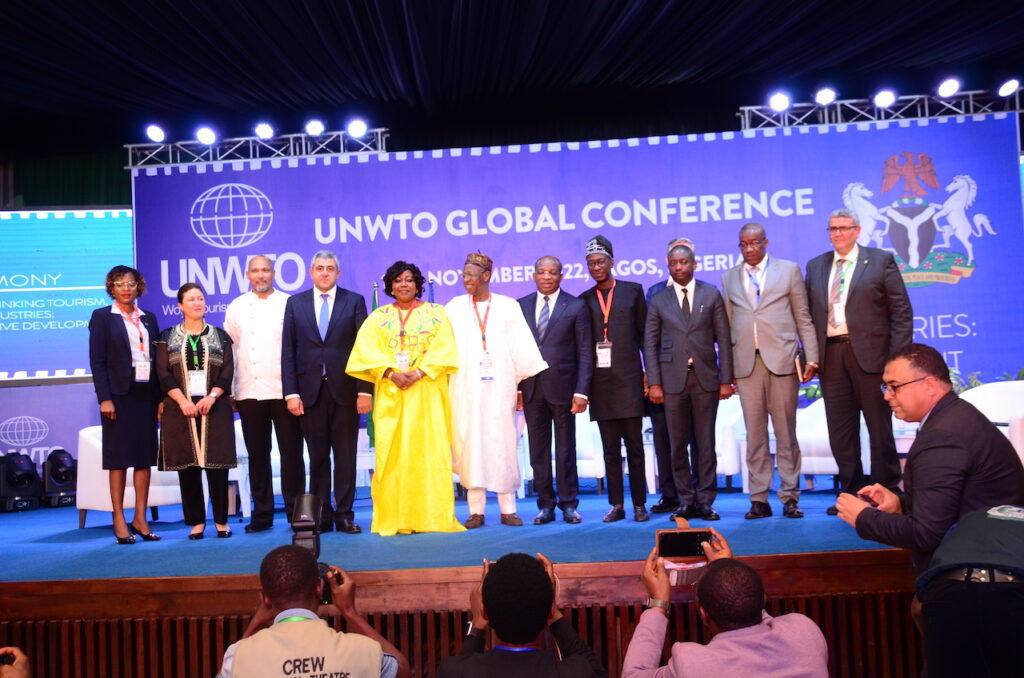
Beyond this, Prof. Osinbajo expressed hope that the event would offer a fine platform to answer questions that are pertinent to the future of tourism.
“This conference also gives us the opportunity to define the future of tourism. what more can we do to make the movement of people across borders easier? What can we do to counter the nativist, ultra-nationalist rhetoric of politicians who seek to demonize foreigners and promote racial segregation.
“How about technology? Will virtual reality, virtual visits and tours kill human interaction or can we turn virtual reality to our advantage? There are so many questions and I am sure this gathering of industry players and experts and enthusiasts will find answers and keep finding answers,” he stated.
In his address, UNWTO Secretary-General, Zurab Pololikashvili said the event was salient in that, culture is playing an integral role in the recovery of tourism.
“Tourism is coming back – we see this for ourselves, with busy airports, full planes and packed conference halls. And cultural tourism will be a key driver our of sector’s recovery. UNWTO research has found that culture is the main motivation of around 40% of all tourists.
“Our partnership with Netflix, a valued UNWTO Affiliate Member, showcases just how well our sectors can work together. At the same time, both cultural tourism and the creative industries are growing in size and relevance. Global exports of creative goods could represent 10% of global GDP before 2030,” he stated.
Zurab added that the fortunes of tourism and culture are closely linked and called for government and private support to drive the industry.
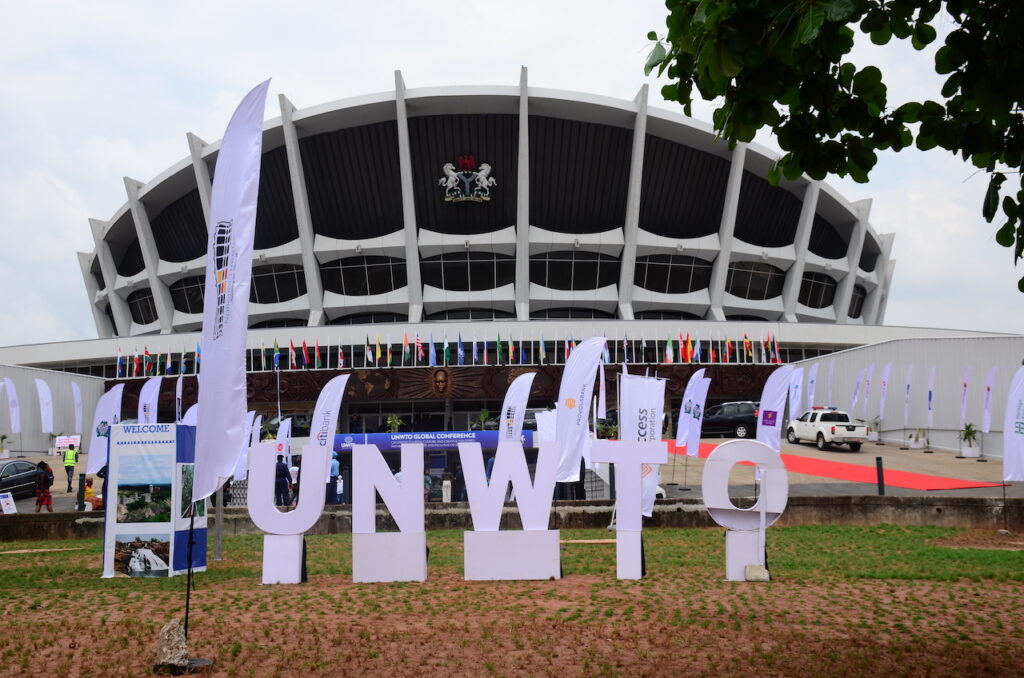
He maintained, “When one thrives, the other does too. Our sectors have achieved a lot together. In many places, tourism has helped keep traditions alive. It has also given new artists and creators the chance to grow. This is no time to stop. We can still do more. We can create even more jobs and opportunities. For this, we need the commitment of Governments to invest in their people. Strong public-private partnerships supporting the tourism workers of tomorrow will deliver long-term benefits for all.”
Nigeria’s Information and Culture, Lai Mohammed described the event as a historically important one noting that, “This conference is very important in the history of the UNWTO and Nigeria, because it marks the very first time that the organization, in a single forum, is bringing together the three inter-linked sectors of tourism, culture and the creative industries to highlight their fundamental importance as effective tools for inclusive development and drivers of sustainable growth.
“For Nigeria, the conference, which has drawn participants from many member states of UNWTO, industry players, international organizations, the academia and the media, among others, presents an ideal opportunity to showcase our rich, diverse and unparalleled tourism and creative assets, to do some networking, learn new things and share knowledge.”
He observed that the conference provides an opportune platform for stakeholders to come up with creative and sustainable solutions to issues affecting tourism and the creative economy.
“One of the key goals of this conference is to bring to the fore sustainable solutions and innovative policies for the development and enhancement of the symbiotic potentials of tourism, culture and the creative industry. I am really excited about this conference and its deliverables in highlighting and promoting these interlinked sectors that are sustainable and inclusive.
“Today, more than ever, tourism and the creative industry, due to their economic viability, are in the global spotlight and have their place at the forefront of national and international development agenda. The creative arts is estimated to generate annual revenue of over 2 trillion US dollars and accounts for over 50 million jobs worldwide,” he stated.
The Minister stressed that there is a need for a better understanding of the economic impact of these inter-linked sectors, as well as of the impact on GDP and on jobs, because very often people do not realize that these sectors can be more important than many heavy industries, and they would never guess that those jobs were created by the cultural sector.
“So, we need to put the numbers on the table, with a view to having an international roadmap to better support tourism and the creative industry, and national strategies for the countries that are engaged in this area” Lai Mohammed emphasised.


